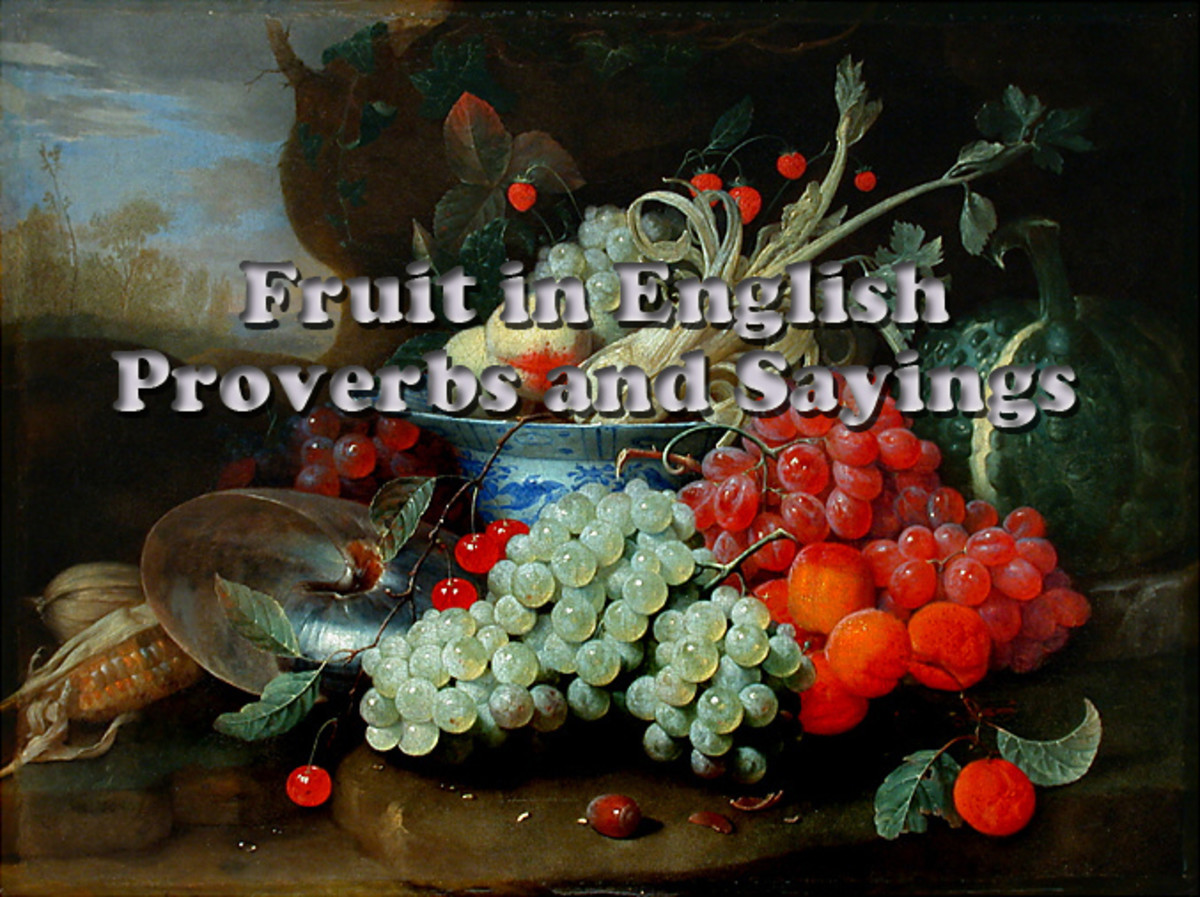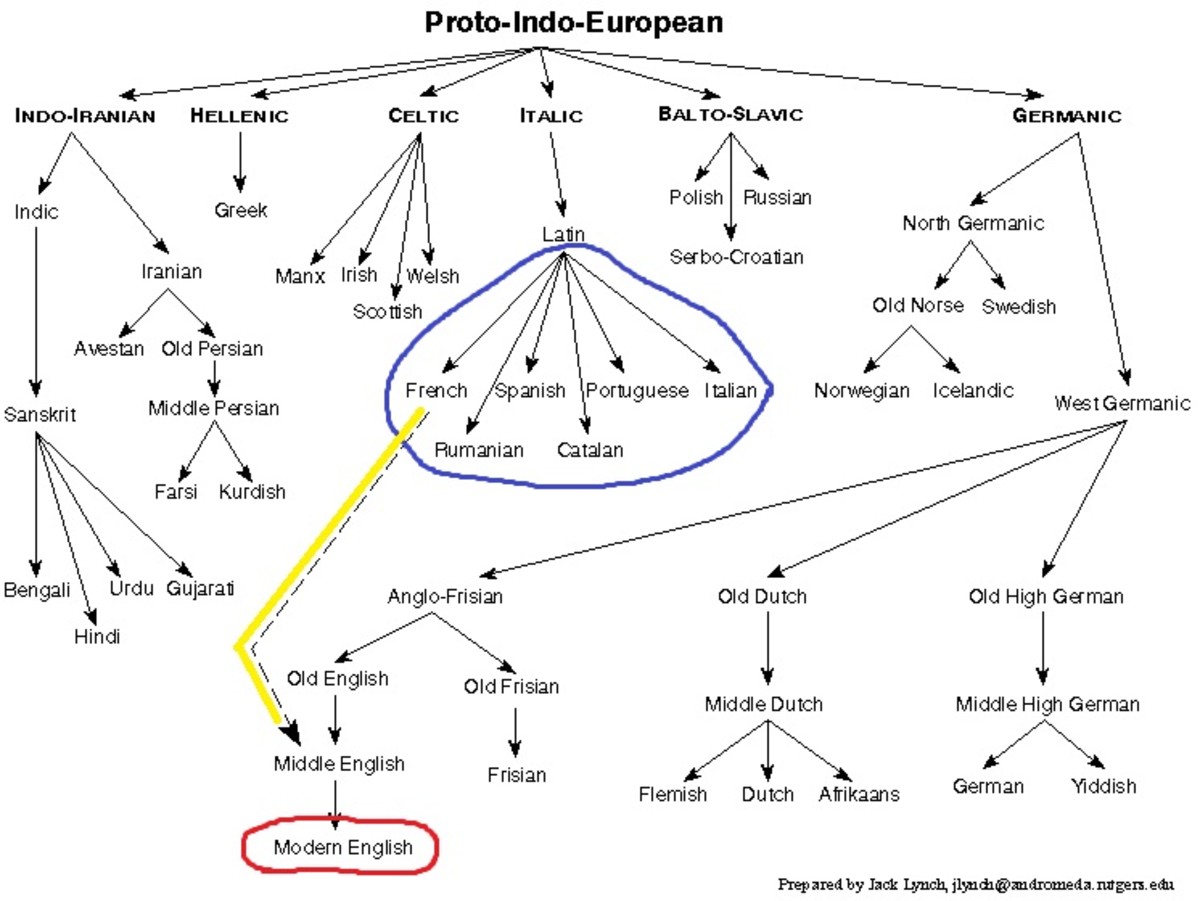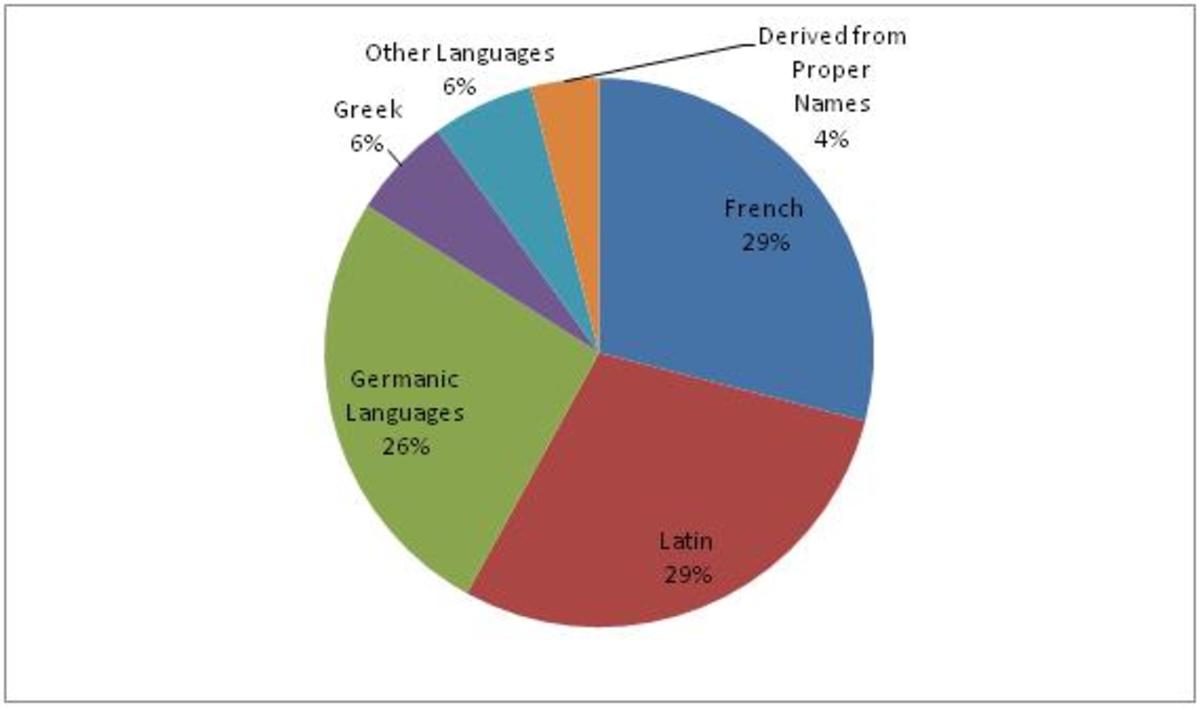English Language - Origin and Development

Origin of Language
Human beings are talkative. Our urge to communicate and growing ability so to do was probably the major factor in our development to become different from other animals. Anthropologists are of the opinion that our ability to co-operate gave us a superiority over other ape species. Co-operation entails communication.
There are other ways of communicating besides speech - smiles, grimaces, smells, gestures and body language of all sorts. We show our feelings by many physical signs, but it is the spoken word that has developed to an extraordinary degree of variation and precision that has distinguished us from all other creatures current and extant.
Animals make meaningful noises, but their range is limited to the likes of "Danger", "Keep still", "Go away", "Where are you?. Man required to say more.
There is no measurable evidence of the progress of language. Words leave no trace until writing emerged and gave them permanence. The earliest writing is from around 6,000 years ago, well after language began. Anthropologists date the advances of primitive man by the measurement of skulls. The size of the skull of modern man was established some 80,000 years ago. What we can be pretty certain about is that as soon as our brain enabled us to think sufficiently to make tools and decorations they were probably making words.
The beginnings must have been slow. Slow at first whilst the possibilities of tongue, lips, palate and throat were practised and explored. Quicker as man realised the significance of imparting knowledge between them. The more they did it the more they wanted to do it.

Language and Mankind
Fluent and complex speech is a panacea of mankind. However 'backward' a race may be their language is elaborate. Australian aborigines, although until recently a Stone Age culture, have a variety of languages to convey complex and complicated stories of their rich mythology. The Bushmen of Africa combine extremes of material poverty with a plethora of words and unwritten literature.
Man has made words, many millions of them, in thousands of languages. It is only recently that they have been recorded, standardised and defined by other words. Language develops. It does not stand still. Words of today are the culmination of many influences on words of the past. Some are now obsolete, some archaic. The development of language today is more from a scientific and technical perspective, as developments in these areas moves apace.

English Language Etymology
The development and origins of English words can be explored in the Online Etymology Dictionary.
English Language - Development
Many more words in particular languages are 'alien', derived from excursions in foreign lands whether this be for exploration or conquest. They have emanated because of a need. for example to denote exotic flora and fauna or commodities that English speakers in remote lands have them in their native names.
Many words have variations, for instance hope, hopeful, hopefully, hopelessly, hopelessness etc. It is man's ingenuity that can make one word into a dozen or more, each expressing a nuance of difference. This leads to the multiplicity of English words. The choice that we have when we open our mouths or record in writing is vast and unlikely ever to be made full use of. The average man, apparently, uses just four or five thousand words of English in normal speech, but understands a myriad of others when heard or read.
And we still go on inventing them. New discoveries and inventions, new ideas and fashions, new social ills, all demand new words. We may run out of fuel, food and water, but we will never run out of words.

Gothic - An Introduction
English Words - Where Do They All Come From?
How do we find so many? What is the source? How can there be a seemingly inexhaustible mine from which we can extract more?
One of the attributes of words is that they belong to us all. No Government can control them, charge for them, tax them or ration them. They are ours to enjoy.
How are we treating them? How and where did we get them?
English has been spoken in England for about one and a half thousand years. In the last four hundred of these it has spread around the world. The tribes of Angles and Saxons with some Jutes who invaded Britain those fifteen hundred years ago had spoken it in Europe in several dialects and developed from Gothic. All were descended from an earlier Germanic language which in itself had descended from a parent language called Indo-European. From this parent language the majority of European languages and some Asian languages had developed. In their new homeland the speech of these tribes merged to form English (Anglisc or Englisc ) which today we call Anglo-Saxon or more correctly Old English (up to around 1100).

Lord's Prayer / Our Father in Old English
Old English - An Introduction
English - Written Records
The first written records of Old English date to around twelve hundred years ago (8th century AD), in prose and poetry. The prose is business-like and brief. The poetry is prolific and fluent. The language is already expressive and vigorous (see Lord's Prayer through the Ages) although baffling to current unversed readers. Each race creates words to suit it's own particular circumstances. The early English had twenty or more words for varying kinds of woodland. Many of these words still survive but some like holt, hurst, shaw and wold have passed into antiquity if not preserved in place names. There was a profusion of words to all the Old English to describe subjects that influenced their lives such as courage in battle, sea adventures and loyalty to their chieftain.
This language can therefore be tracked for a millennium and a half except for a break when it was suppressed after the Norman conquest (1066), emerging again in the thirteenth century as Middle English. It had not lost any of its vibrancy and liveliness, especially in poetry.

Middle English - An Introduction
English Language - Changes Through The Ages
During that millennia or so the chief changes were simplification of grammar and huge expansion of vocabulary. Many of the original words have been lost and forgotten but the additions have more than compensated. We can follow the development of words throughout that timespan: how they have been produced, changed, shortened, elongated, diced, concatenated, overworked or neglected, but mostly used and re-used.
We can deduce that from the beginnings of language man has been doing exactly the same things with the words at his disposal.
We can also see that the two main sources of new words are:
- The re-arrangement of old material already in our possession.
- To borrow them from other languages.
In both cases we are using second-hand material and recycling it ingeniously to give life to a new creation. Both methods depend on one thing - that there is a stock of old words to manipulate. Rather it is many stocks of words if we are to extract words from foreign word-banks for our own use.
The first words were truly original in their concept and creation. These were created far back in our history and beyond our reach but the art of creating them has not left us entirely. The task I have set myself is to convey how we can think how they were created and to create and evolve words and bring life to all our communication skills.









